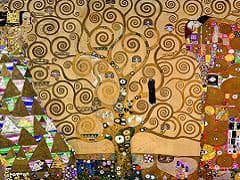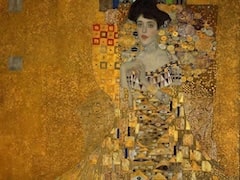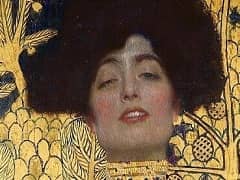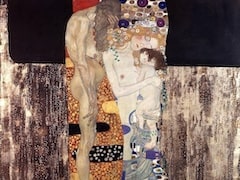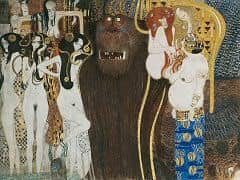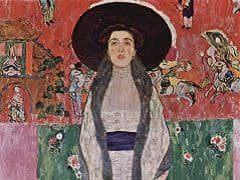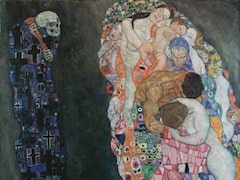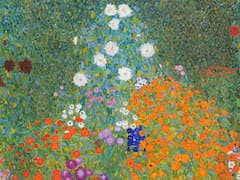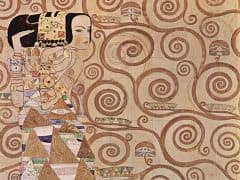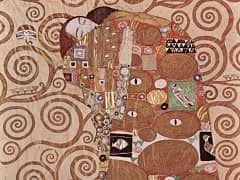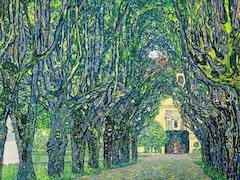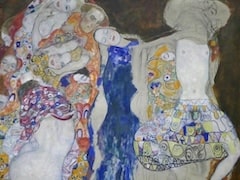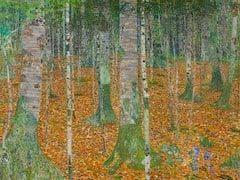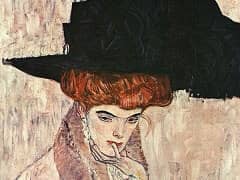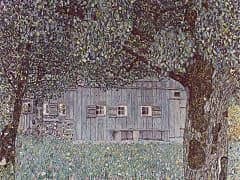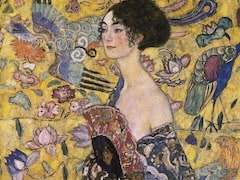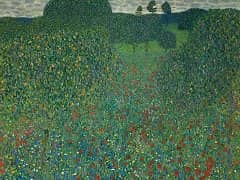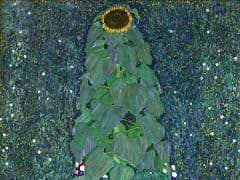Nuda Veritas, 1889 by Gustav Klimt

The text from the German poet Schiller at the top of the painting reads: 'If you cannot please everyone with your actions and your art, you should satisfy a few. To please many is dangerous.' The
somewhat aggressive note of this inscription, combined with the mirror that the female figure holds out to the viewer, inviting us to examine ourselves, can perhaps be related to the rebelliousness
of the Secession movement.
The text also reveals the elitism of the Secessionists, in that only a small and select circle could understand and appreciate their ideas. The figure of Nuda Veritas, or 'naked truth', is not
intended to be the mediator of the Secessionists' beliefs. Instead, the emphasis on her femininity encourages the viewer to think of her as a desirable woman, rather than as an allegorical figure.
Although the viewer is being presented with 'the truth', only those privileged enough to grasp the tenets of the Secession can benefit from the figure of truth.
A finished drawing for the Nuda Veritas was published in the Secessionists' journal, Ver Sacrum. The essentials of the composition are the same, apart from the addition of the snake in the
painting, and the change of text along the top.
The painting of Nuda Veritas was bought by Hermann Bahr, a dramatist and critic. He was a staunch supporter of the Secession from the beginning and acted as an adviser to the editorial board of Ver
Sacrum. It was Bahr who had urged the establishment of such a journal: 'The disgraceful fact that Austria boasts not a single illustrated art magazine enjoying a wide circulation and tailored to its
particular needs has prevented artists from becoming known. This journal should prove of help to them.' Bahr commissioned the architect Joseph Maria Olbrich to build a small house for him, and the
panelling in the study was specially designed to accommodate Klimt's painting.


